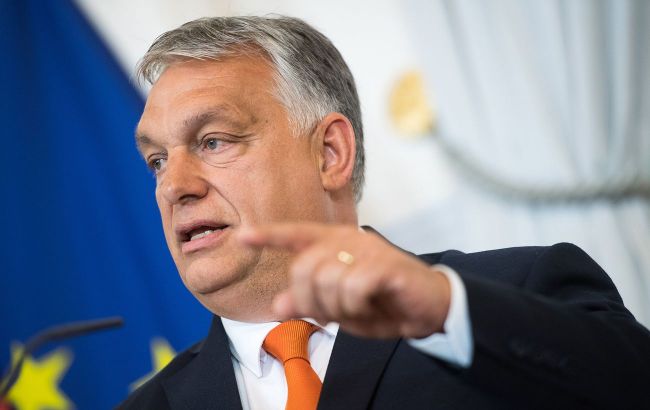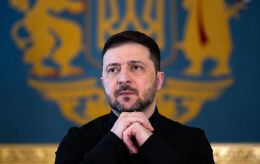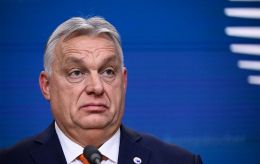Orban uses largest college in Europe for educating Putinists
 Orban's party funds pro-Russian propaganda in the largest college in the EU (photo: Getty Images)
Orban's party funds pro-Russian propaganda in the largest college in the EU (photo: Getty Images)
The Hungarian government is reportedly utilizing the country's most prestigious and largest private institution of higher education, Matyás Corvinus Collegium, for shaping the views of future voters. According to sources, pro-Russian narratives are being imparted to the students of this college, according to the Bloomberg.
Bloomberg notes that the Hungarian government, led by Prime Minister Viktor Orban, is allegedly inviting supporters of Russian dictator Vladimir Putin and former U.S. President Donald Trump to give lectures at the university.
Regular guest lecturers in front of college students include individuals such as former Fox News host and Donald Trump supporter, as well as a proponent of Russian propaganda, Tucker Carlson. Additionally, American economist Jeffrey Sachs, who supports Orban's critical stance on sanctions against Russia, has also addressed students.
Matyás Corvinus Collegium, with 18 branches in Hungary, branches in Vienna, centers in Ukraine and Romania, and a branch in Slovakia since October 2023, has expanded its reach. Moreover, the institution has agreements with educational establishments in Brussels, New York, and several British cities, with further expansion reportedly in the leadership's plans.
Despite being considered private, the college is primarily funded by Prime Minister Orban's government, receiving various "grants" from it.
Daniel Hegedüs, a research fellow at the German Marshall Fund of the United States, told Bloomberg that through the university, Viktor Orban "ensures popularity for his Fidesz party among educated youth, expands his influence in other countries, and strengthens the nationalist ideology he calls 'illiberal democracy.'"
According to Hegedüs, this college is part of the propaganda machine of Fidesz. This is supported by the fact that, according to a former intern of the college, lectures on history and politics were often delivered by members of Orban's ruling party.
"Graduate students from France, England, Germany, and other countries study there, writing the same things that the Hungarian leader says, in their own languages, and imposing Orban's views on their compatriots," said the informant to journalists.
Hungary's blocking of negotiations on Ukraine's accession to the EU
On November 8, the European Commission recommended initiating negotiations on Ukraine's accession to the European Union.
Hungarian Prime Minister Viktor Orban, on December 4, urged European Council President Charles Michel not to discuss the start of negotiations on Ukraine's accession at the EU leaders' summit on December 14-15. Orban referred to Brussels' initiative as the end of the EU enlargement policy as an objective tool based on values.
Hungary's ruling party presented a resolution to parliament calling on the government not to support the commencement of accession negotiations with Ukraine. Fidesz, the ruling party, stated that the start of accession negotiations for Ukraine should be based on consensus among member states, and there are no conditions for this today.
However, the EU will find a way to provide financial assistance to Ukraine, even if Viktor Orban vetoes a €50 billion aid package.


